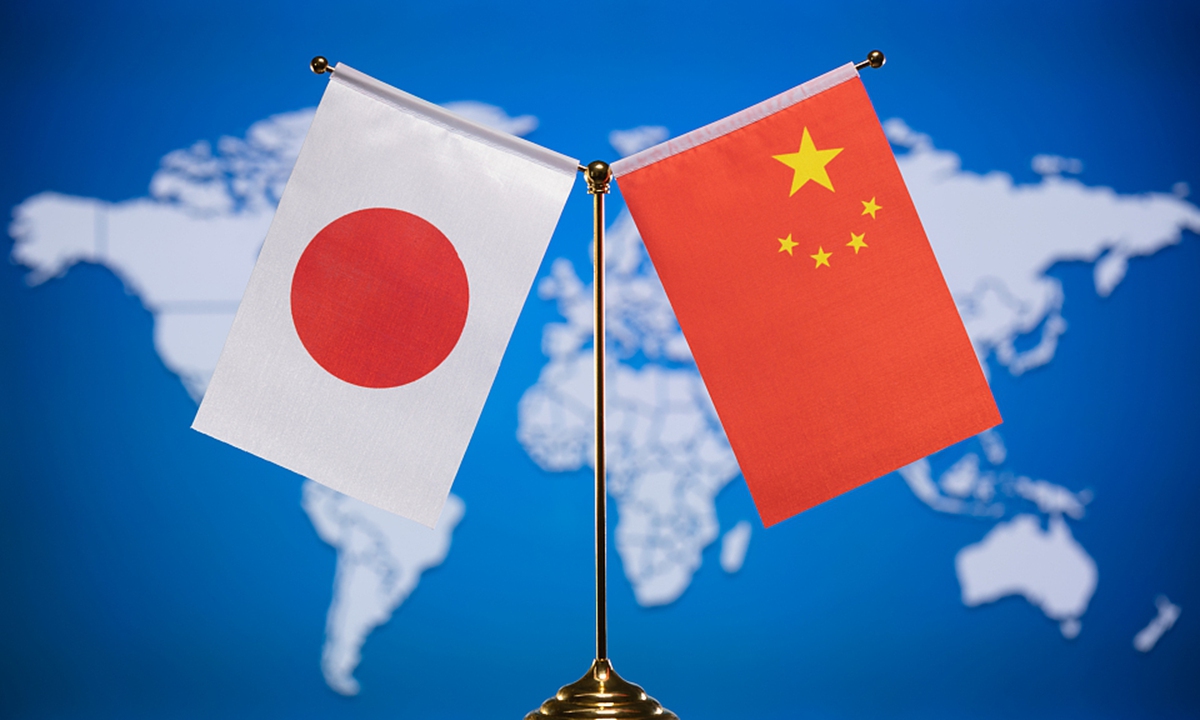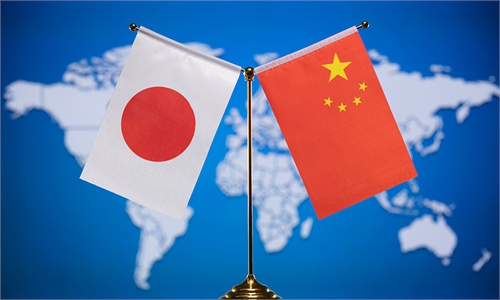
China-Japan Photo: VCG
At the invitation of the Communist Party of China, Hiroshi Moriyama, secretary-general of Japan's Liberal Democratic Party and Makoto Nishida, secretary-general of Komeito Party, are leading a delegation of Japan's ruling coalition to visit China from Monday to Wednesday for the 9th Meeting of the China-Japan Ruling Party Exchange Mechanism. This marks the resumption of the mechanism after nearly seven years and is expected to inject new momentum into improving China-Japan relations.The Ruling Party Exchange Mechanism has played a significant role in the development of China-Japan relations since its founding more than 20 years ago. First, it can facilitate high-level communication and coordination between the two countries. As a non-governmental platform, the mechanism can provide an opportunity for both sides to engage in candid discussions on major issues in China-Japan relations, deepen mutual understanding of each other's positions and concerns, and avoid misunderstandings and misjudgments. In this way, it can complement the decision-making processes of both governments.
Second, it will help enhance political mutual trust. In times when the two governments are divided over sensitive issues, communication and consultation through party channels can help ease tensions, enhance mutual understanding and trust, and prevent political friction and conflicts from escalating, thereby serving as a "buffer" in China-Japan ties.
Third, it can promote practical cooperation between the two countries. Through this mechanism, both sides had reached a series of agreements and achieved consensus on cooperation in areas such as the economy, environment, energy and technology in the past, thereby promoting the further development of China-Japan economic and trade relations. It's expected that through this meeting, the two sides will strengthen political dialogues, promote people-to-people exchanges and create a healthy and rational public opinion environment for China-Japan relations.
Fourth, it can promote people-to-people exchanges. Under the leadership of the ruling parties, exchanges and cooperation between China and Japan in cultural, educational and tourism could be strengthened, enhancing mutual understanding and friendship between the peoples of both countries and improving the public opinion environment.
It should be noted that China-Japan relations, as well as the international and regional situation, have changed significantly since the last meeting of the China-Japan Ruling Party Exchange Mechanism. In recent years, with the resurgence of great power competition and geopolitical tensions, Japan's domestic perception of China and Tokyo's policy orientation have taken a more negative turn. As a result, the bilateral relationship has fallen to a low point, with three major structural contradictions standing out: a lack of mutual trust in terms of security, a decline in cooperative momentum, and fragile public sentiment.
At the same time, the current global political, economic and security landscape is turbulent, and the process of regional integration in the Asia-Pacific is facing bottlenecks and constraints. The prospect of US foreign policy moving further toward protectionism and unilateralism also exposes China and Japan to common external challenges.
However, this should not dim our confidence in developing bilateral ties. With China-Japan relations gradually stabilizing and warming since last year, the 9th Meeting of the China-Japan Ruling Party Exchange Mechanism is timely and expected to inject new political momentum into the further improvement and development of the bilateral relationship.
Since Chinese President Xi Jinping met with Japanese Prime Minister Shigeru Ishiba on the sidelines of the 31st APEC Economic Leaders' Meeting in November in Peru, a series of high-level interactions have taken place between the two sides, including the China-Japan Defense Ministerial Meeting and a visit to China by Japanese Foreign Minister Takeshi Iwaya. Meanwhile, people-to-people exchanges between the two countries have also been rapidly warming. At the end of November last year, China decided to apply the visa-free policy to Japan for Japanese citizens on a trial basis, which was warmly welcomed across Japan. In the first 11 months of 2024, the number of Chinese tourists visiting Japan reached 6.38 million.
Against this backdrop, the visit of Japan's ruling coalition delegation at the beginning of the new year to China sends a positive signal that Japan seeks to further develop and improve its relationship with China. In fact, through this visit, the Japanese side also intends to explore the possibility of Ishiba visiting China. If Ishiba eventually visits China this year, he will become the first Japanese prime minister to do so in six years, which is expected to play a strong role in promoting the improvement of bilateral relations.
For the improvement and sustainable development of China-Japan relations, it is crucial for both to focus on their fundamental and long-term interests and uphold the commitment that "the two countries are cooperative partners, not a threat to each other." A key step is for Japan to adjust its perception of China and adopt a more positive and friendly policy toward China. We hope the resumption of the China-Japan ruling party dialogue mechanism will bring more stability to the bilateral relationship.
The author is a research fellow of the Department for Asia-Pacific Studies of the China Institute of International Studies. opinion@globaltimes.com.cn

